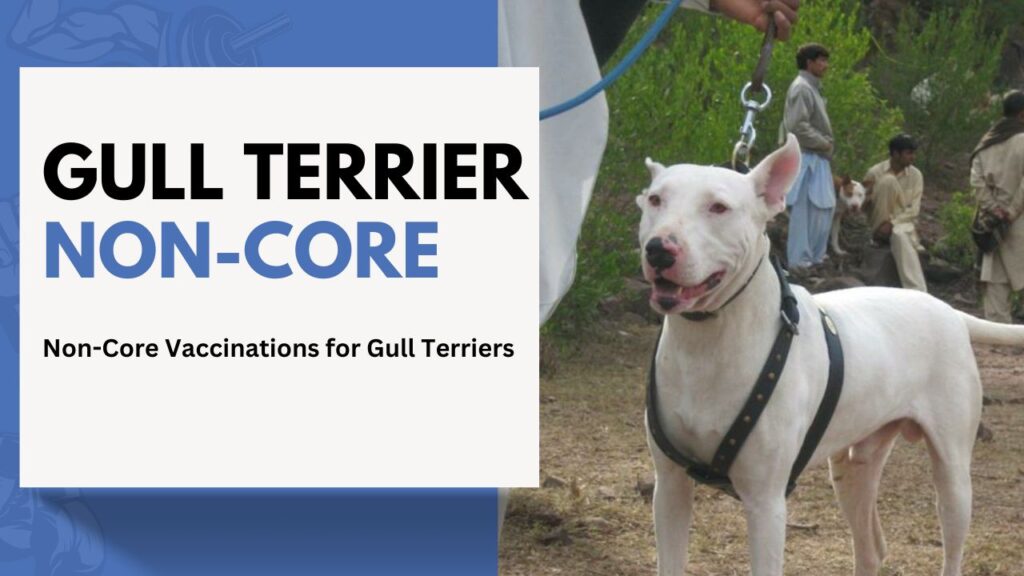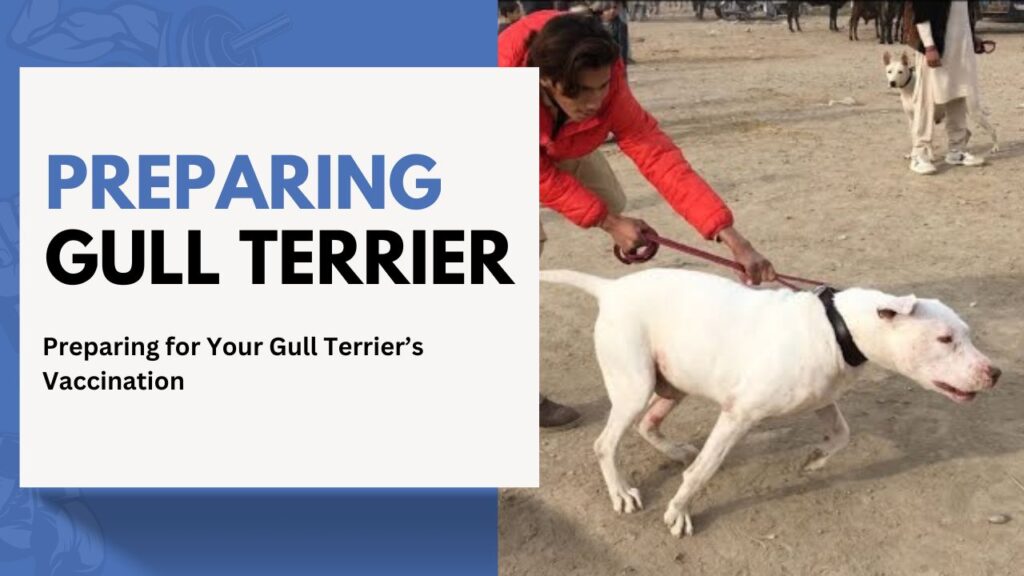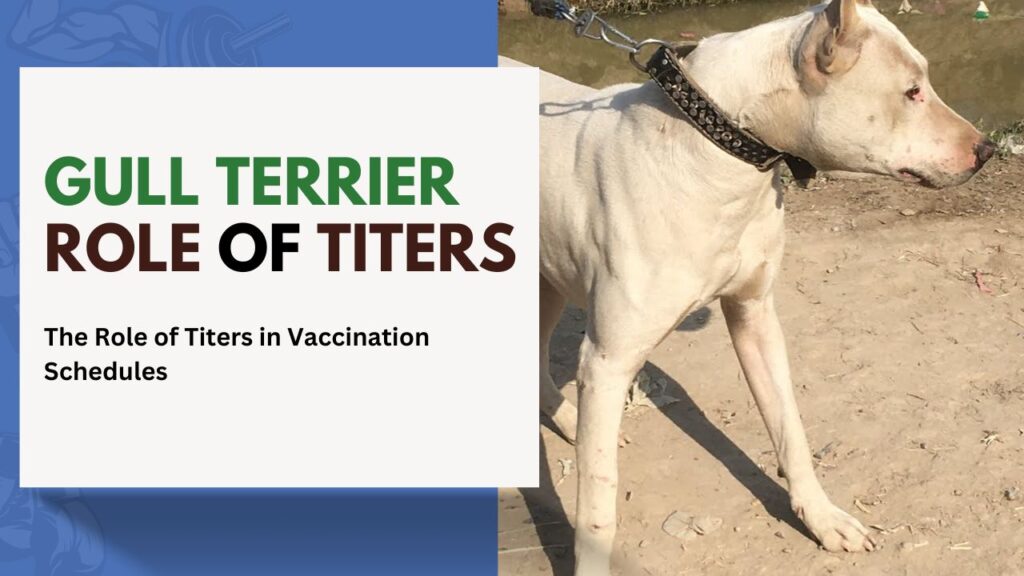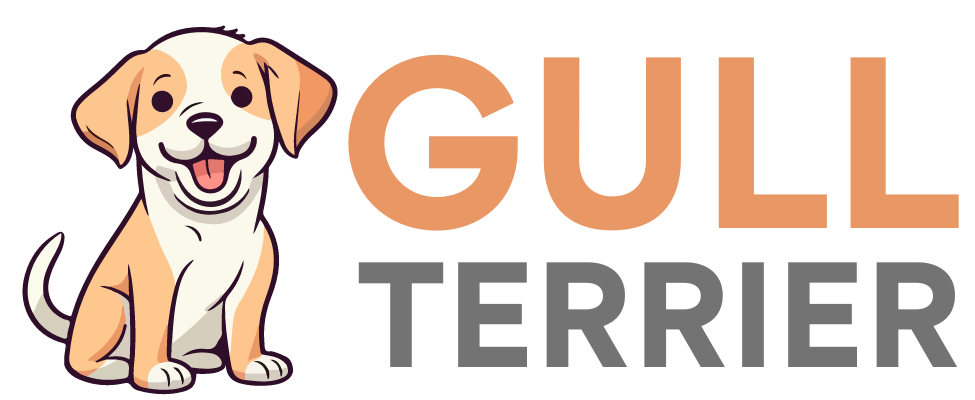Vaccination Schedule for Your Gull Terrier: A Vet’s Advice
Last Updated: March 28, 2024, Written by: Faisal Amin
Ensuring your Gull Terrier stays healthy and protected against various diseases is a top priority for any pet owner, and vaccinations play a crucial role in this process. Vaccines help prepare your dog’s immune system to fend off attacks from specific diseases, offering a shield of protection that can save lives and prevent serious health…
Ensuring your Gull Terrier stays healthy and protected against various diseases is a top priority for any pet owner, and vaccinations play a crucial role in this process. Vaccines help prepare your dog’s immune system to fend off attacks from specific diseases, offering a shield of protection that can save lives and prevent serious health complications. For Gull Terriers, a breed known for its energy and robustness, staying up-to-date with vaccinations is key to maintaining their health and vitality.
The basics of canine vaccinations and the importance of adhering to a recommended vaccination schedule can make all the difference in your pet’s life. Let’s dive into the essential vaccines for Gull Terriers, including disease overviews and vaccination schedules, to ensure your furry friend is fully protected.
Core Vaccinations for Gull Terriers
Core vaccinations are crucial for all dogs, including Gull Terriers, to protect them against common and potentially severe diseases. These vaccinations target diseases that are widespread, pose a significant threat to canine health, are transmissible to humans, or are exceptionally dangerous. For Gull Terriers, the core vaccinations include protection against canine parvovirus, distemper, hepatitis, and rabies. Each of these diseases can have devastating effects on your dog’s health, making vaccinations an essential aspect of their care regimen.
Canine Parvovirus
Canine parvovirus is a highly contagious viral illness that affects dogs, characterized by symptoms such as vomiting, severe diarrhea, and lethargy. The virus is particularly dangerous for puppies and unvaccinated dogs, often leading to fatal outcomes if not treated promptly. Parvovirus spreads through direct contact with an infected dog or contaminated surfaces, emphasizing the importance of vaccination in preventing this disease.
Disease Overview
- Canine parvovirus attacks the gastrointestinal tract and immune system, leading to severe symptoms and potential death.
- Highly contagious, especially in places where dogs congregate.
- Puppies and young dogs are most at risk due to their developing immune systems.
- The virus is resistant to many disinfectants and can remain in the environment for months.
Vaccination Schedule
- Initial vaccination is recommended at 6-8 weeks of age, followed by boosters at 3- to 4-week intervals until the puppy is 16-20 weeks old.
- A booster is given one year after completing the initial series.
- Adult dogs require a booster every 1-3 years, depending on the vaccine type and vet’s recommendation.
- Early vaccination and adherence to the schedule are critical for protection against parvovirus.
“Getting your Gull Terrier vaccinated is like giving them a superhero cape against diseases—oddly heroic and strangely adorable, yet profoundly important for their adventures in sniffing, running, and being your loyal sidekick.”
Canine Distemper
Canine distemper is a viral disease affecting dogs and wild animals, causing respiratory, gastrointestinal, and nervous system symptoms. The disease is highly contagious and can be fatal, making vaccination against distemper a core component of canine healthcare.
Disease Overview
- Causes severe respiratory, gastrointestinal, and neurological symptoms.
- Spread through airborne exposure and contact with infected fluids.
- No known cure for distemper; treatment focuses on alleviating symptoms.
- Vaccination is the most effective way to prevent the disease.
Vaccination Schedule
- Puppies should receive their first vaccine at 6-8 weeks of age, with boosters every 3-4 weeks until they are 16-20 weeks old.
- A booster shot is administered one year after the last dose of the puppy series.
- Adults should receive boosters every 1-3 years based on veterinary advice.
- Timely vaccination is crucial to prevent outbreaks of distemper.
Canine Hepatitis
Canine hepatitis, caused by the adenovirus type 1, affects the liver, kidneys, spleen, lungs, and eyes. While some dogs can recover, the disease can lead to severe health issues or death, particularly in young puppies.
Disease Overview
- Targets the liver and can cause eye damage and breathing problems.
- Transmitted through contact with infected urine, feces, or saliva.
- Symptoms include fever, depression, loss of appetite, and abdominal pain.
- Vaccination significantly reduces the risk of contracting the disease.
Vaccination Schedule
- The initial vaccine is given at 6-8 weeks of age, with boosters following every 3-4 weeks until 16 weeks old.
- A booster is administered one year later and then every 1-3 years, based on the vet’s recommendation.
- Ensuring your Gull Terrier is vaccinated against hepatitis is key to their overall health.
- Vaccination also helps prevent the spread of the virus to other dogs.
Rabies
Rabies is a fatal viral disease that affects the central nervous system of mammals, including humans and dogs. Vaccination against rabies is not only crucial for your dog’s health but often required by law due to the risk to human health.
.
Disease Overview
- Rabies is transmitted through the bite of an infected animal, leading to fatal neurological deterioration.
- Symptoms include behavioral changes, paralysis, and ultimately death.
- There is no cure for rabies, making prevention through vaccination essential.
- Rabies poses a significant public health risk, necessitating strict vaccination laws in many areas.
Vaccination Schedule
- Puppies should receive their rabies vaccine between 12 and 16 weeks of age.
- A booster shot is typically administered one year after the initial vaccine.
- Adult dogs require booster shots every 1-3 years, depending on local regulations and vaccine type.
- Adherence to the rabies vaccination schedule is crucial for the safety of both the dog and the public.
Non-Core Vaccinations for Gull Terriers

Non-core vaccinations cater to specific environmental and lifestyle-related risks that may not affect every dog but are critical for those exposed. Diseases like Bordetella, Canine Influenza, Leptospirosis, and Lyme Disease, while preventable through vaccination, can pose significant health risks under the right conditions. Understanding these risks and the benefits of vaccination can help you navigate the best care for your Gull Terrier.
Bordetella (Kennel Cough)
Bordetella, commonly known as kennel cough, is a highly contagious respiratory disease that poses a risk to dogs that are frequently in close contact with other dogs. The disease is characterized by a harsh, hacking cough that can last for weeks, making it uncomfortable for affected dogs and potentially leading to more severe complications in puppies or immunocompromised dogs. The Bordetella bacterium, along with other organisms, can cause this condition, spreading through airborne particles, direct contact, or contaminated surfaces.
Disease Overview:
Bordetella bronchiseptica is a key pathogen responsible for kennel cough, a condition that can quickly spread in communal dog areas. Symptoms typically include a persistent cough, which may be accompanied by sneezing, runny nose, and in some cases, fever. Though it’s rarely fatal, kennel cough can significantly impact a dog’s quality of life and lead to secondary infections if not properly treated.
Vaccination Schedule:
The vaccination against Bordetella is recommended for dogs that are at higher risk of exposure, such as those attending doggy daycare, boarding, or frequenting dog parks. Puppies can be vaccinated as early as 6-8 weeks of age, with a booster following 2-4 weeks later. Most dogs will then require an annual booster to maintain immunity, although some vets may recommend a more frequent schedule based on the dog’s lifestyle and risk of exposure.
Canine Influenza
Canine Influenza, or dog flu, is a respiratory infection that has been increasingly recognized in the canine population. Like human flu, it can range from mild to severe, with symptoms including coughing, nasal discharge, fever, lethargy, and loss of appetite. This disease is highly contagious among dogs, particularly in environments where they interact closely, making vaccination an important consideration for socially active dogs.
Disease Overview:
Canine Influenza viruses, H3N8 and H3N2, are responsible for outbreaks of respiratory disease in dogs. The infection is airborne, spreading through coughs and sneezes, and can be contracted from contaminated surfaces. Infected dogs may exhibit mild symptoms like a cough and nasal discharge or more severe signs such as high fever and pneumonia.
Vaccination Schedule:
Vaccination against canine influenza is recommended for dogs at risk of exposure due to their lifestyle or geographic location. The initial vaccination series consists of two doses, administered 2-4 weeks apart. Following this, an annual booster is typically recommended to ensure continued protection against the virus. Pet owners should consult their vet to determine whether the canine influenza vaccine is appropriate for their dog based on their specific risk factors.
Leptospirosis
Leptospirosis is a bacterial disease that can affect both dogs and humans, transmitted through contact with infected urine or contaminated water sources. This disease can lead to severe liver or kidney damage, and in some cases, it can be fatal. Vaccination against leptospirosis is especially important for dogs that have access to or frequently encounter lakes, rivers, or areas with wildlife.
Disease Overview:
Leptospirosis is caused by bacteria that thrive in warm, moist environments. Dogs can contract the disease by drinking from or swimming in contaminated water bodies. Symptoms include fever, vomiting, abdominal pain, and increased thirst and urination, potentially leading to more severe complications without prompt treatment.
Vaccination Schedule:
The leptospirosis vaccine is administered initially as a set of two injections spaced 2-4 weeks apart. Dogs require an annual booster to maintain immunity. Given the potential for serious health issues and the zoonotic nature of the disease, vaccination is strongly advised for at-risk dogs, particularly those in areas with known leptospirosis cases or those who engage in outdoor activities in natural settings.
Lyme Disease
Lyme Disease, transmitted by ticks, poses a risk to dogs in many parts of the country, especially those in wooded or grassy areas. While not all ticks carry the bacteria that cause Lyme Disease, those that do can transmit the disease to dogs through a single bite, leading to symptoms such as lameness, joint swelling, fever, and lethargy. In severe cases, the disease can cause kidney damage, making prevention and vaccination key components of care for dogs at risk of tick exposure.
Disease Overview:
Lyme Disease is caused by the Borrelia burgdorferi bacterium, transmitted to dogs through the bite of infected ticks. The disease can be difficult to detect initially, as symptoms may not appear until months after the tick bite. This makes prevention, through both vaccination and regular tick control measures, crucial for dogs in endemic areas.
Vaccination Schedule:
Vaccination against Lyme Disease is recommended for dogs living in or frequently visiting areas known for high tick populations. The initial vaccination course involves two injections given 2-4 weeks apart. Following this, an annual booster shot is necessary to maintain protection. Owners should also employ regular tick prevention strategies, as vaccination alone cannot guarantee complete protection against Lyme Disease.
Vaccination Schedule Overview
A comprehensive vaccination schedule from puppyhood to senior age is vital for maintaining your Gull Terrier’s health. This schedule begins with initial vaccinations during puppyhood, continues with booster shots throughout the dog’s life, and adjusts to the changing needs of an aging dog. Understanding this vaccination timeline ensures your pet remains protected against various diseases over the years.
Puppy to Adult
The transition from puppyhood to adulthood is a critical period for vaccinations, setting the foundation for a healthy life.
Initial Vaccinations:
Puppies should start receiving their initial vaccinations at around 6-8 weeks of age. These vaccinations protect against core diseases and can include non-core vaccines based on the puppy’s risk of exposure.
Booster Shots:
Following the initial vaccinations, puppies require booster shots to build and maintain immunity. These boosters are typically given at 3- to 4-week intervals until the puppy reaches about 16-20 weeks old, followed by additional boosters as recommended by your vet.
Adult to Senior
As your Gull Terrier ages, their vaccination needs continue but may require adjustments based on their health and lifestyle.
Ongoing Maintenance:
Adult dogs need regular booster shots to maintain immunity against core and non-core diseases. The frequency of these boosters can vary, often recommended annually or every three years, depending on the specific vaccine and the dog’s overall health status.
Senior Considerations:
For senior Gull Terriers, veterinarians might assess the necessity and frequency of certain vaccinations, taking into account the dog’s health, lifestyle, and risk of exposure. Senior dogs may have different health considerations, and their vaccination schedule can be tailored to ensure they receive the protection they need without undue stress on their system.
Preparing for Your Gull Terrier’s Vaccination

Preparing for your Gull Terrier’s vaccination is a crucial step in ensuring their health and well-being. The process involves understanding what to expect during the vet visit, how to care for your dog afterward, and recognizing the importance of ongoing health monitoring. Being well-prepared can help make the vaccination process smoother for both you and your pet. It’s essential to know the right questions to ask and what observations to make post-vaccination. This section will guide you through preparing for the vaccination, what to anticipate at the vet’s office, and how to monitor your dog after they’ve received their shots.
What to Expect at the Vet?
Visiting the vet for vaccinations is more than just receiving shots; it’s a comprehensive health check for your Gull Terrier. Your veterinarian will likely conduct a full physical examination to ensure your dog is healthy enough for vaccination. This visit is an excellent opportunity to discuss any concerns you may have about your dog’s health or behavior. You’ll be asked about your dog’s medical history, lifestyle, and any previous reactions to vaccinations. Understanding this process can help reduce any anxiety you might have and prepare you for any follow-up care or observations needed.
Aftercare and Monitoring
After your Gull Terrier receives their vaccinations, observing their health and behavior is crucial for identifying any adverse reactions, even though they are rare. Knowing how to provide proper aftercare and when to contact your vet for advice are key components of post-vaccination care.
Immediate Post-Vaccination Period:
In the hours following vaccination, it’s common for dogs to experience mild side effects such as lethargy, a slight fever, or tenderness at the injection site. These reactions are typically short-lived and resolve without intervention. However, monitoring your dog during this period is essential to ensure that they’re comfortable and that no severe reactions develop. Keeping your dog calm and comfortable can help ease any temporary discomfort they may experience.
Long-Term Health Monitoring:
Beyond the initial reaction period, keeping an eye on your dog’s overall health in the weeks following vaccination is wise. Rarely, dogs may exhibit delayed reactions to vaccines, such as allergic reactions or more significant health concerns. Regular check-ups with your vet can help catch any potential issues early. Maintaining a record of your dog’s vaccination dates and any reactions they may have had can be invaluable for future veterinary visits.
Common Questions About Vaccinations
Are Vaccinations Safe?
Vaccinations are a vital part of preventative healthcare for dogs, including Gull Terriers. While the risk of serious side effects is low, some pet owners have concerns about vaccine safety. Veterinary science supports the use of vaccines as safe and effective in preventing serious diseases. Discussing these concerns with your vet can provide reassurance and clarity on the benefits and risks associated with dog vaccinations.
How to Handle Vaccine Reactions?
Though rare, vaccine reactions can occur. Knowing how to recognize and respond to these reactions is crucial. Symptoms of a reaction can range from mild to severe, including swelling at the vaccination site, hives, or more severe symptoms such as difficulty breathing or collapse. If you notice any of these signs, it’s important to contact your veterinarian immediately for advice on the appropriate action to take.
The Cost of Vaccinations
The cost of vaccinating your Gull Terrier can vary depending on geographic location, the type of vaccine, and the veterinary practice. While some may worry about the expense, the cost of preventive vaccinations is generally much lower than the cost of treating the diseases they protect against. Many veterinary practices offer wellness plans that include vaccinations, helping to spread the cost over time.
The Role of Titers in Vaccination Schedules

Titers are blood tests that measure a dog’s immunity levels to certain diseases, which can inform decisions about the need for booster vaccinations. Some pet owners opt for titer testing as a way to potentially reduce the number of vaccines their dog receives. However, it’s important to consult with your veterinarian about the use of titers, as they may not be appropriate for all vaccines or situations. Your vet can provide guidance on whether titer testing is a suitable option for your Gull Terrier.
The Role of a Healthy Lifestyle in Supporting Vaccinations
A healthy lifestyle plays a critical role in supporting the effectiveness of your Gull Terrier’s vaccinations. Proper nutrition and regular exercise can bolster your dog’s immune system, helping their body respond optimally to vaccines.
Nutrition and Immune Health
Providing your Gull Terrier with a balanced diet that meets their nutritional needs is essential for maintaining a strong immune system. High-quality dog food, appropriate to your dog’s age, size, and activity level, can provide the necessary nutrients to support overall health and vaccination efficacy. Discussing your dog’s diet with your veterinarian can ensure you’re meeting their specific nutritional requirements.
Exercise and Well-being
Regular exercise is not only important for your Gull Terrier’s physical health but also for their mental well-being. Keeping your dog active helps to manage their weight, reduce the risk of chronic diseases, and support a robust immune system, all of which are important for a healthy response to vaccinations.
Daily Exercise Guidelines:
Gull Terriers, like all dogs, require daily physical activity to stay healthy. The amount and type of exercise will depend on their age, health status, and energy level. Generally, a combination of walks, play sessions, and mentally stimulating activities are recommended to keep your dog engaged and fit. Tailoring activities to your dog’s interests can help ensure they remain active and enjoy their exercise routine.
Exercise as Part of Disease Prevention:
Regular exercise not only supports physical health but also plays a crucial role in disease prevention. An active lifestyle can help mitigate the risk of obesity, diabetes, and heart disease, while also enhancing the effectiveness of vaccines. Engaging your Gull Terrier in regular physical activities can boost their immune system, helping their body to better respond to vaccinations and fight off potential diseases.
Explore Categories:
Conclusion
Vaccinations are a fundamental aspect of ensuring your Gull Terrier’s health and longevity. By preparing for your dog’s vaccination visits, understanding what to expect, and knowing how to monitor your pet afterward, you can help ensure they remain healthy and protected against various diseases. Addressing common questions and concerns about vaccinations, such as their safety and cost, can provide peace of mind and help you make informed decisions for your pet’s care.
Moreover, supporting your Gull Terrier’s vaccinations with a healthy lifestyle, through proper nutrition and regular exercise, can enhance their overall well-being and immune response. Partnering with your veterinarian to develop a tailored vaccination schedule and wellness plan will enable your Gull Terrier to lead a happy, healthy life by your side.
